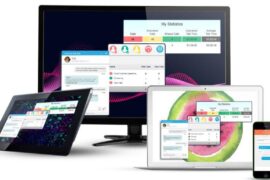Energy consumption comprises of an increasing share of global energy. In particular, energy is now considered a more desirable source of fuel than nuclear power due to the absence of risk and disasters. Many countries have started to install facilities that use energy as sources for power generation. It is important to note that the excessive use of fossil fuels is directly linked to climate changes experienced all over the world. When talking about clean technologies, there are two primary concepts of energy technologies: energy supply technologies, which refers to alternative sources of renewable energy (e.g: wind and solar power), and energy efficiency technologies.
Renewable Energy is produced from natural resources that are constantly reproduced. Renewable energy sources can be classified under the following categories: Hydroelectricity, Geothermal, Solar, Tide/Wave/Ocean, Wind, Solid biofuels, biogases, liquid biofuels, and Renewable municipal waste.
Below are more detailed explanations on the above-listed sources of renewable energy provided:
Hydroelectricity: Refers to the potential and kinetic energy of water converted into electricity in hydroelectric plants.
Geothermal: Energy available as heat emitted from within the earth’s crust, usually in the form of hot water or steam.
Solar: Solar radiation exploited for electricity generation and hot water production.
Tide/Wave/Ocean: Mechanical energy derived from tidal movement, wave motion or ocean cur-rent and exploited for electricity generation.
Wind: Kinetic energy of wind exploited for electricity generation by wind turbines
Advantages And Disadvantages Of Renewable Energy
Advantages
– The cost of maintaining and operating it is low
– Provides long life period
– Entails long-term planning
– Service cost is low
– Reliable source
– Provides efficient energy production and safety
Disadvantages
– It requires a significant upfront investment
– Entails long-term planning
– Long-term agreement
– Entails multidisciplinary involvement
– Excessive competition
Why compare energy suppliers?
Switching providers can help you to do the following:
– Save on energy costs
– Reduce your carbon footprint with greener energy
– Get the customer support you need
How to compare energy suppliers
When searching for the energy provider, it’s wise to check out the company’s reputation as well as their prices. One ideal way that energy providers can be compared is to review the range of services they offer, their customer service opening hours, and how they handle billing queries. Reviews from other customers can also help you get a feel for a company. When comparing providers, consider the following factors:
Location: To begin with, find out the various options that are available in your zip code.
Cost: Your energy bill comes with a cost that is rated per kilowatt-hour (kWh) You should also check out the fees which include late payment fees, connection fees and early termination fees.
Green energy options: Search for suppliers that provide100% green energy. Depending on where you live, you can choose from solar, geothermal, wind, hydroelectric or a combination of these green energy sources.
Tailored business plans: Some providers provide plans that are designed for small and medium-sized businesses or large enterprises.
If you would like to know more about how you can compare various energy utilities to meet your personal or commercial energy needs, please visit this link: compare energy.































